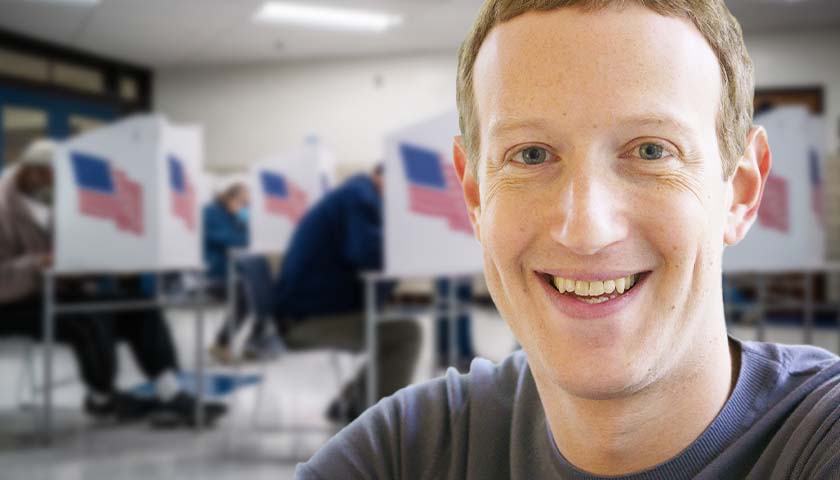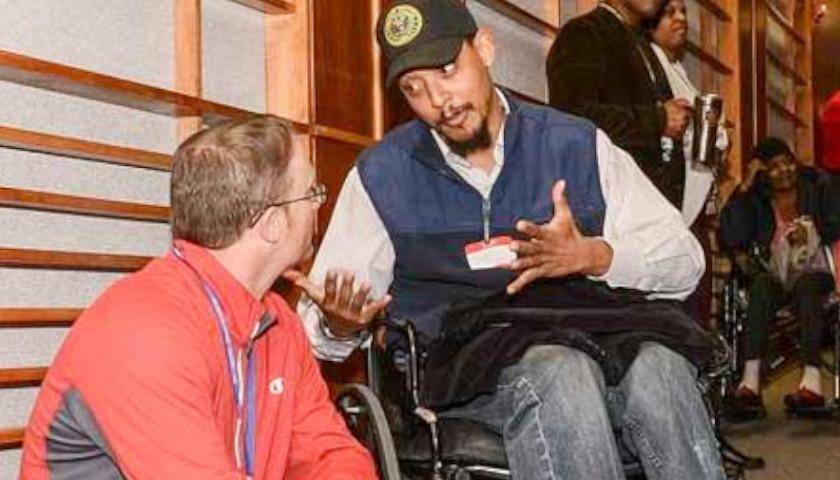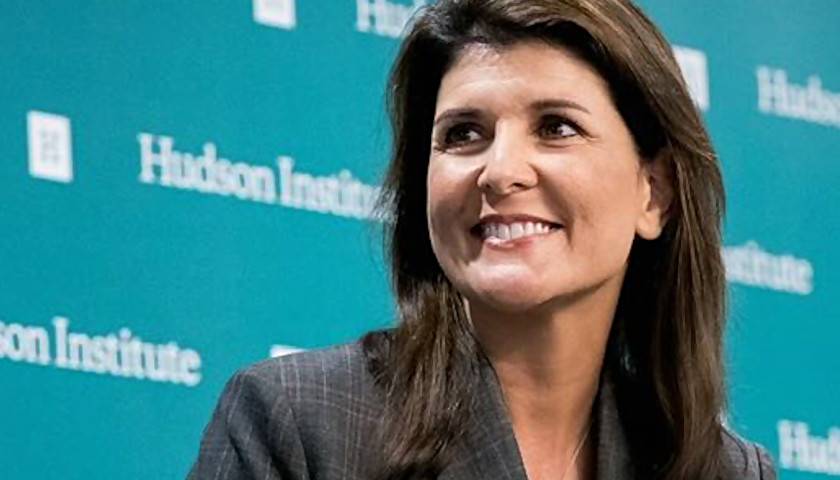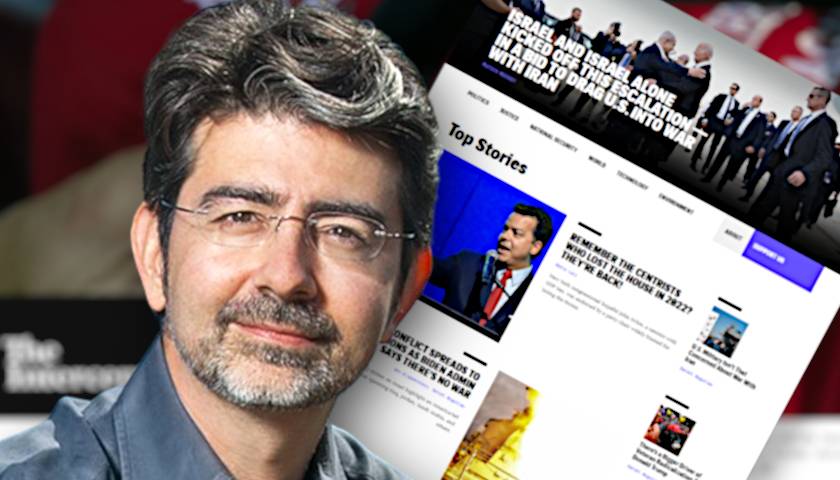by Natalia Mittelstadt
As “Zuckerbucks” — the injection of private money into public election administration — make a comeback, states and municipalities are clashing over whether the funds should be accepted or banned.
While many states and counties across the country have either restricted or banned the use of private money to fund public elections offices, a nonprofit with progressive Democrat ties that served as the key link in the 2020 Zuckerbucks funding chain is still finding loopholes in some counties as states seek to tighten up their laws.
The U.S. Alliance for Election Excellence, a project of the Center for Tech and Civic Life (CTCL), is awarding funds to counties and municipalities under the Centers for Election Excellence program. The alliance will provide $80 million over five years “to envision, support, and celebrate excellence in U.S. election administration,” according to CTCL.
CTCL poured nearly $350 million into local elections offices managing the 2020 election, with most of the funds donated to the nonprofit by Facebook founder Mark Zuckerberg. The nonprofit has claimed its 2020 election grants — colloquially known as “Zuckerbucks” — were allocated without partisan preference to make voting safer amid the pandemic.
Critics of the unprecedented level of private funding injected into election administration offices in 2020 argue the grants were awarded disproportionately to boost voter participation in swing state Democratic strongholds. A House Republican investigation found that less than 1 percent of the funds were spent on personal protective equipment.
Zuckerberg himself has announced through a spokesman that the funds he gave to election nonprofits in 2020 were “a one-time donation to help address the unprecedented challenge of ensuring Americans could safely vote during the height of the pandemic.” The Meta chairman and CEO has “not made” and is not “planning to make, any additional donations, including any additional donations to the Center for Tech and Civic Life,” Brian Baker, spokesman for Zuckerberg and his wife Priscilla Chan, told Fox News Digital.
Other left-leaning donors have stepped forward, however, to fill the void left by Zuckerberg’s withdrawal from the political minefield of private election funding, according to a report on the U.S. Alliance for Election Excellence compiled by Influence Watch.
“Although the Alliance is officially nonpartisan, its members are connected left-of-center groups both through financial support and advising,” reports the right-leaning watchdog. “The Alliance is sponsored by the Audacious Project, a program of TED Conferences, which is supported by the Bridgespan Group and Science Philanthropy Alliance, a project of the left-of-center New Venture Fund, itself part of a multi-billion-dollar ‘dark money’ network run by consulting firm Arabella Advisors.”
Following controversy surrounding the disproportionate private funding funneled to Democratic jurisdictions and claims the imbalance helped sway the 2020 election in Biden’s favor, 24 states have either restricted or banned the use of private money to fund elections, while 12 counties have also restricted or banned the funds, according to the Capital Research Center.
In Georgia, the state Legislature is looking to close a Zuckerbucks loophole after the DeKalb County Board of Voter Registration & Elections accepted $2 million from the alliance, which Georgia Secretary of State Brad Raffensperger (R) told Just the News “is a violation of S.B. 202,” the election integrity law that was supposed “to preclude any outside organizations from sending, directly, money to counties for election purposes.”
Under S.B. 202, “the money should be sent to the secretary of state’s office,” then dispensed to the counties, Raffensperger explained.
DeKalb County Board of Elections Chairwoman Dele Lowman Smith said the county followed “the letter of the law” by having the finance department apply for the grant, rather than the elections department.
In response to the county’s use of a technicality to evade the intent of the law, state lawmakers are working on passing S.B. 222, which would tighten the restrictions on private funds going to election administration.
Specifically, the bill would “provide that all costs and expenses relating to election administration are paid for with lawfully appropriate public funds” and “prohibit certain local governments and persons from soliciting or accepting donations or other things of value to support the performance of election administration.”
The new legislation passed the state Senate earlier this month and was subsequently approved by the Georgia House Governmental Affairs Committee, with the likelihood of being passed by the full House and signed into law by Republican Gov. Brian Kemp.
Idaho has also expanded its Zuckerbucks ban, with the governor signing a bill into law earlier this month prohibiting state employees and officials from accepting private funds to administer elections, tightening the previous ban, which applied specifically to elections offices and county clerks.
In Montana, a bill banning election offices from receiving Zuckerbucks was passed by the state Senate and is now pending in the state House.
The North Carolina state Senate is also considering a bill banning private funds in election administration.
Some counties have decided to reject Zuckerbucks on their own, regardless of whether their state has banned them.
In Ottawa County, Mich., the county clerk declined a $1.5 million grant from the U.S. Alliance for Election Excellence over concerns about private money with possible political connections being used “to fund election operations.”
In North Carolina, election officials in Brunswick and Forsyth counties also said they won’t take money from the CTCL’s new funding vehicle. However, unlike Ottawa County, Brunswick and Forsyth are keeping their membership with the alliance.
Meanwhile, several other jurisdictions have accepted the private funding, including heavily Democratic Madison, Wisc. ($1.5 million), Clark County, Nev. ($3 million) and Greenwich, Conn. ($500,000), as well as heavily Republican Macoupin County, Ill ($500,000).
Meanwhile, in Congress, Rep. Claudia Tenney (R-N.Y.) has reintroduced legislation to prevent nonprofits “from directly funding official election organizations through donations or donated services,” according to a press release from her office earlier this month.
The press release also mentions how the alliance is providing “heavily discounted services to certain jurisdictions. This includes in-depth consulting services that can help shape the voting processes without democratic input from residents.”
“CTCL funneled Mark Zuckerberg’s personal wealth to election agencies of his choosing without a shred of transparency or accountability,” Tenney said in a statement. “This kind of influence operation by a third party in America’s elections undermines public confidence in the democratic process. It puts private donors in charge of dictating to government agencies what should and should not be done. We cannot allow organizations like this to flout the law or continue their partisan, private funding of our elections.”
– – –
Natalia Mittelstadt is a reporter at Just the News. Mittelstadt graduated from Regent University with Bachelor of Arts degrees in Communication Studies and Government.
Photo “Mark Zuckerberg” by Mark Zuckerberg. Background Photo “Election Day 2020” by Phil Roeder. CC BY 2.0.





